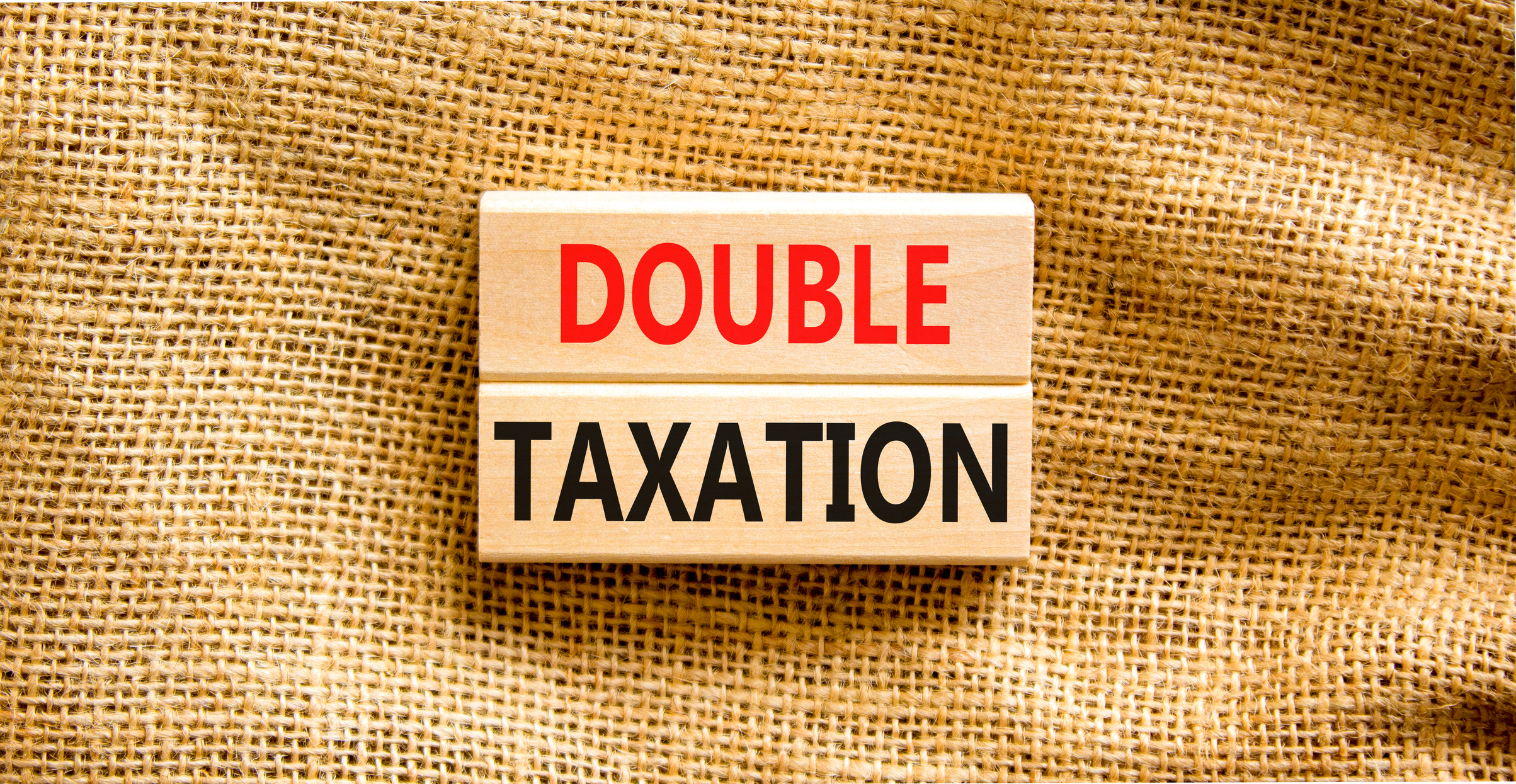Another IRS 1099-K Threshold Rule Change to Know for Tax Season
After years of uncertainty and changing requirements, the 1099-K reporting rules are now set, and the thresholds have changed since last year.


Profit and prosper with the best of Kiplinger's advice on investing, taxes, retirement, personal finance and much more. Delivered daily. Enter your email in the box and click Sign Me Up.
You are now subscribed
Your newsletter sign-up was successful
Want to add more newsletters?

Delivered daily
Kiplinger Today
Profit and prosper with the best of Kiplinger's advice on investing, taxes, retirement, personal finance and much more delivered daily. Smart money moves start here.

Sent five days a week
Kiplinger A Step Ahead
Get practical help to make better financial decisions in your everyday life, from spending to savings on top deals.

Delivered daily
Kiplinger Closing Bell
Get today's biggest financial and investing headlines delivered to your inbox every day the U.S. stock market is open.

Sent twice a week
Kiplinger Adviser Intel
Financial pros across the country share best practices and fresh tactics to preserve and grow your wealth.

Delivered weekly
Kiplinger Tax Tips
Trim your federal and state tax bills with practical tax-planning and tax-cutting strategies.

Sent twice a week
Kiplinger Retirement Tips
Your twice-a-week guide to planning and enjoying a financially secure and richly rewarding retirement

Sent bimonthly.
Kiplinger Adviser Angle
Insights for advisers, wealth managers and other financial professionals.

Sent twice a week
Kiplinger Investing Weekly
Your twice-a-week roundup of promising stocks, funds, companies and industries you should consider, ones you should avoid, and why.

Sent weekly for six weeks
Kiplinger Invest for Retirement
Your step-by-step six-part series on how to invest for retirement, from devising a successful strategy to exactly which investments to choose.
If you earn money through a side hustle, run a small business, or get paid through apps like Venmo, PayPal, or Cash App, or sites like eBay, you’ve probably come across a lot of mixed messages about the 1099-K form.
You’re not alone. Over the past couple of tax seasons, many online sellers and freelancers have shared that same uncertainty.
Much of the confusion stemmed from IRS back-and-forth on the 1099-K reporting threshold. That included changed policies and postponed deadlines for implementing an initial “$600 rule,” which left sellers and payment platforms in limbo.
From just $107.88 $24.99 for Kiplinger Personal Finance
Become a smarter, better informed investor. Subscribe from just $107.88 $24.99, plus get up to 4 Special Issues

Sign up for Kiplinger’s Free Newsletters
Profit and prosper with the best of expert advice on investing, taxes, retirement, personal finance and more - straight to your e-mail.
Profit and prosper with the best of expert advice - straight to your e-mail.
But there’s some good news: Congress recently enacted a rule change designed to simplify things this year.
- Essentially, this latest approach returns to a more familiar and less burdensome framework.
- That shift should alleviate some of the stress for many individuals and businesses confused by more recent tax reporting requirements.
Here’s what you need to know about the latest change to 1099-K rules for your 2025 taxes, starting with a look at what the 1009K is.
Why you're getting a 1099-K
A 1099-K is an IRS tax form that reports payments you received through third-party networks or payment apps. Think of it as a way for the IRS to track income earned from business activities, like online sales or gig work, that is processed through platforms like PayPal, Venmo, or Cash App.
Over the past couple of tax seasons, there has been considerable confusion about when these forms were issued due to adjustments to IRS rules.
- Due to a pandemic-era law, the reporting threshold for Form 1099-K was initially supposed to drop to just $600, meaning payment platforms would have sent millions of tax forms to people with even small amounts of business or casual sales income.
- Since then, thresholds for reporting shifted multiple times, causing many people to receive unexpected 1099-K forms.
- For example, last year, the IRS announced a $5,000 threshold for 2024 taxes as part of a phase-in to implement the $600 reporting threshold.
Although the tax agency was attempting to implement the thresholds in stages, the back-and-forth made tax filing stressful and unclear for many sellers and some payment platforms.
1099-K threshold: What’s new for 2025 taxes?
As of July 4, 2025, the Trump/GOP tax and spending bill, often referred to by Trump as the “big beautiful bill” (BBB), became law. The megabill brings several tax changes.
One that will likely have many cheering is a return to the earlier, higher thresholds for 1099-K reporting from payment apps like (but not limited to) PayPal, Venmo, Cash App, Etsy, StubHub, eBay, and Airbnb.
So, for payments you receive for 2025 (sent to you in early 2026), you should only receive a Form 1099-K if:
- You receive more than $20,000 in gross payments and
- You conduct more than 200 transactions on a single platform within a year.
For most people paid via these third-party processing platforms — from part-time sellers to casual gig workers — this means no more unexpected tax paperwork just for the occasional online sale or side job.
Reinstating the 200/20,000 rule should reduce the paperwork burden on smaller sellers and gig workers while maintaining IRS oversight of higher-volume payment activity. It will eventually help lessen uncertainty.
What to do If you receive a 1099-K
If you get a 1099-K form in the mail, it means the IRS has a record of payments made to you through a third-party platform. Receiving the form doesn’t automatically mean you owe taxes on the full amount shown, though. It's just a report of gross payments received.
You still need to accurately track your expenses and income to determine your taxable profit.
Here are a few more key tips to keep in mind:
Keep thorough records: Save receipts, invoices, and transaction statements related to your sales or services. This documentation is essential for deducting business expenses and verifying your income.
Report all income: Report all your taxable income, whether you receive a 1099-K or not.
Match your records to the 1099-K: Use the form as a helpful cross-check, but don’t assume it’s error-free. Payment platforms sometimes report gross payments without subtracting fees, refunds, or chargebacks.
Consult a tax professional if needed: If your situation is complex or you’re unsure how to handle the form, a tax advisor can help you navigate tax deductions and credits, reporting, and compliance.
Being proactive and organized throughout the year can make tax time less stressful and help you avoid surprises if you do receive a Form 1099-K.
Read More
Profit and prosper with the best of Kiplinger's advice on investing, taxes, retirement, personal finance and much more. Delivered daily. Enter your email in the box and click Sign Me Up.

Kelley R. Taylor is the senior tax editor at Kiplinger.com, where she breaks down federal and state tax rules and news to help readers navigate their finances with confidence. A corporate attorney and business journalist with more than 20 years of experience, Kelley has helped taxpayers make sense of shifting U.S. tax law and policy from the Affordable Care Act (ACA) and the Tax Cuts and Jobs Act (TCJA), to SECURE 2.0, the Inflation Reduction Act, and most recently, the 2025 “Big, Beautiful Bill.” She has covered issues ranging from partnerships, carried interest, compensation and benefits, and tax‑exempt organizations to RMDs, capital gains taxes, and energy tax credits. Her award‑winning work has been featured in numerous national and specialty publications.
-
 Quiz: Do You Know How to Avoid the "Medigap Trap?"
Quiz: Do You Know How to Avoid the "Medigap Trap?"Quiz Test your basic knowledge of the "Medigap Trap" in our quick quiz.
-
 5 Top Tax-Efficient Mutual Funds for Smarter Investing
5 Top Tax-Efficient Mutual Funds for Smarter InvestingMutual funds are many things, but "tax-friendly" usually isn't one of them. These are the exceptions.
-
 AI Sparks Existential Crisis for Software Stocks
AI Sparks Existential Crisis for Software StocksThe Kiplinger Letter Fears that SaaS subscription software could be rendered obsolete by artificial intelligence make investors jittery.
-
 How to Open Your Kid's $1,000 Trump Account
How to Open Your Kid's $1,000 Trump AccountTax Breaks Filing income taxes in 2026? You won't want to miss Form 4547 to claim a $1,000 Trump Account for your child.
-
 In Arkansas and Illinois, Groceries Just Got Cheaper, But Not By Much
In Arkansas and Illinois, Groceries Just Got Cheaper, But Not By MuchFood Prices Arkansas and Illinois are the most recent states to repeal sales tax on groceries. Will it really help shoppers with their food bills?
-
 7 Bad Tax Habits to Kick Right Now
7 Bad Tax Habits to Kick Right NowTax Tips Ditch these seven common habits to sidestep IRS red flags for a smoother, faster 2026 income tax filing.
-
 New Plan Could End Surprise Taxes on Social Security 'Back Pay'
New Plan Could End Surprise Taxes on Social Security 'Back Pay'Social Security Taxes on Social Security benefits are stirring debate again, as recent changes could affect how some retirees file their returns this tax season.
-
 Living in One State, Working in Another: How to Avoid a Tax Season Headache
Living in One State, Working in Another: How to Avoid a Tax Season HeadacheState Tax Living and working in two states can take a heavy toll on your paycheck and give you a headache come tax time. Here's what to know.
-
 New Gambling Tax Rule Impacts Super Bowl 2026 Bets
New Gambling Tax Rule Impacts Super Bowl 2026 BetsTaxable Income When Super Bowl LX hype fades, some fans may be surprised to learn that sports betting tax rules have shifted.
-
 Should You Do Your Own Taxes This Year or Hire a Pro?
Should You Do Your Own Taxes This Year or Hire a Pro?Taxes Doing your own taxes isn’t easy, and hiring a tax pro isn’t cheap. Here’s a guide to help you figure out whether to tackle the job on your own or hire a professional.
-
 Trump $10B IRS Lawsuit Hits an Already Chaotic 2026 Tax Season
Trump $10B IRS Lawsuit Hits an Already Chaotic 2026 Tax SeasonTax Law A new Trump lawsuit and warnings from a tax-industry watchdog point to an IRS under strain, just as millions of taxpayers begin filing their 2025 returns.